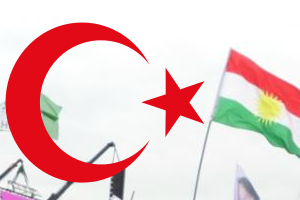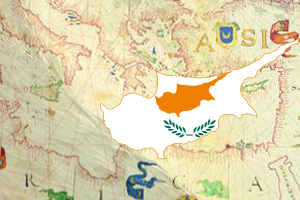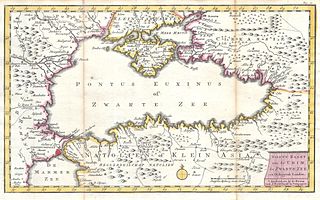Turkey’s Kurds and the Post-election Political Landscape
By Gareth Jenkins (vol. 8, no. 13 of the Turkey Analyst)
The Turkish general election of 7 June stripped the ruling Justice and Development Party (AKP) of its parliamentary majority for the first time since November 2002 and dealt a devastating blow to President Recep Tayyip Erdoğan’s hopes of replacing the country’s parliamentary system with an autocratic presidential one in which all political power was concentrated in his own hands. But, even though the election was an undoubted triumph for the pro-Kurdish Peoples’ Democratic Party (HDP), it has also left the Kurdish nationalist movement facing a number of challenges.

Turkey Loses Ground in Cyprus
By Ozan Serdaroğlu (vol. 8, no. 13 of the Turkey Analyst)
Seven months after Cypriot president Nicos Anastasiades withdrew from the peace talks, attempts to reunify Cyprus are again underway with greater optimism following the election of Mustafa Akıncı as the new leader of Turkish Cypriots. The Greek Cypriot side continues to enlarge its diplomatic capacities and develops a new regional context where Turkey is left with fewer options. Eastern Mediterranean geopolitics together with the more assertive, independent-minded stance of Turkish Cypriots in favor of “reunification” mean that Turkey faces the most delicate stage of its engagement in Cyprus since 1974.

What the Columnists Say
Abdülkadir Selvi in Yeni Şafak reports that Turkey is determined to take action in Syria if the PYD expands to the west of the Euphrates, taking control of Jarabulus, but that this does not mean that Turkey is about to go to war. Özgür Mumcu in Cumhuriyet writes that Turkey is dreaming about a military operation that is internally marketed as an operation against PYD, while it is externally marketed as something that supposedly targets ISIS. Orhan Kemal Cengiz in Bugün writes that the question after the election was if Erdoğan was going to interpret the results as a no to the proposed, unlimited powers of the presidency or as a “road accident,” and concludes that it’s now business as usual for the president. Orhan Bursalı in Cumhuriyet writes that it is very difficult for AKP to accept that the party has lost the possibility to form a majority government on its own, and that the party and the “Mighty” – Erdoğan – intends to never relinquish power. Candaş Tolga Işık at the Habere Dikkat news site writes that handing the seat of the speaker of the parliament to AKP as a gift, only because MHP is unable to curb its hatred of HDP, is going to be the undoing of the party.

Turkey’s Crimean Dilemmas and Passivity
By Stephen Blank (vol. 8, no. 4 of the Turkey Analyst)
Given the prominent role that Ankara aspires to have in regional and world affairs what does the Turkish passivity in relation to the developments in the Black Sea region, and specifically regarding the case of Crimea, say about those avowed aspirations? Turkey's inability and unwillingness to stand up to Russian neo-expansionism – something history should have taught Ankara to be extremely wary of – serves to further underline that Turkey's erstwhile reputation for conducting a strong independent foreign policy was never deserved.

Turkey and the Georgia War: a Bungled Stability Initiative
By M. K. Kaya and Svante E. Cornell (vol. 1, no. 12 of the Turkey Analyst)
Like most other states, Turkey was hard pressed to respond to the war in Georgia. For Turkey, the war threatened its position in the Caucasus, as well as its long-term objective of becoming a hub of European energy transportation. Prime Minister Erdogan chose to moment in order to promote a form of Caucasian alliance - a well-intentioned but somewhat surreal proposal in the middle of a raging war. The crisis exposed the government's lack of attention to the Caucasus, and the need for a serious rethink of Turkey's role there



